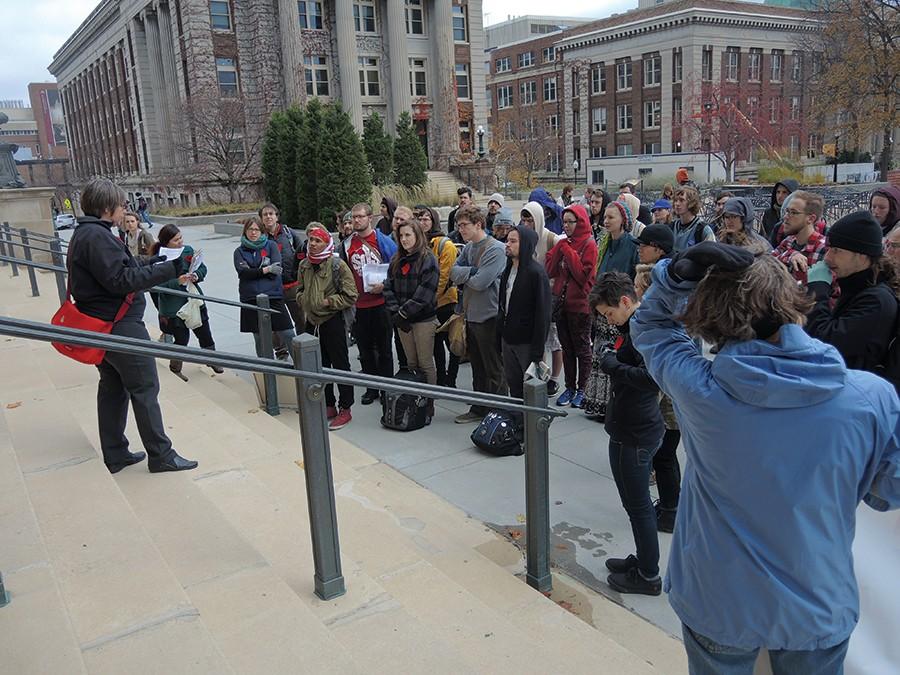Students protest rising tuition
University of Minnesota students were joined by union members to address the affordability of education.
Students gather outside Northop Auditorium Nov. 12 to protest rising tuition costs.
November 18, 2015
Severe wind conditions did not deter protesters from speaking about the rising cost of college at the University of Minnesota’s Northrop Auditorium last Thursday.
Using a rented generator and microphone, protest organizers and union representatives took turns speaking out about the challenges faced when trying to pay for college, as well as low wages for university staff and faculty.
Both undergraduate and graduate students from the University of Minnesota and other area colleges such as St. Catherine’s University and Normandale College were joined by members of the Minnesota Nurses Association, and AFSCME 3800, a local branch of a clerical workers union.
Two retired nurses from the Minnesota Nurses Association that came to show student’s support from their union encouraged other local union chapters to do the same.
“I chose a public university because I couldn’t afford a private one,” said student Ashley Pforr. “And I can’t even afford this one.”
Speakers and participants were advocating for tuition freezes on public higher education, as well as showcasing social injustices committed by the university, specifically the fact that most of the “higher-ups” at the University of Minnesota are white males as well as the fact that all the vice presidents of the university received recent pay increases.
“Our money is going to the one percent of the one percent,” said Normandale College student Tyler Halford. “It’s not going to the people who need it the most.”
Halford was a lead organizer of the protest, who also said he put up flyers on the Normandale campus, just to have them taken down by the college.
Halford also spoke about the future goals of the movement, including abolishing public school tuition altogether, and working to minimize private school student debt as well as creating “living wages” for graduate students.
“People think we are just a bunch of lazy millennials,” said Pforr. “Really though we are working harder than ever and just ending up with piles and piles of debt.”
While the protest did not directly support any political candidate or party, Halford did say that he and the rest of the protest leaders were indirectly supporting Bernie Sanders, because of aligning viewpoints.
“I would support any person or party who shared our beliefs,” said Halford.
Students also spoke about the protests at the University of Missouri, and Halford said that he and fellow protestors stood in solidarity with those students in advocating for social justice on campuses.
The protestors reported they had no push back from the University, and had not contacted the University to let them know the protest was going to happen.

